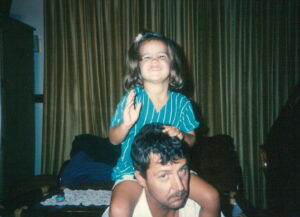Supporting Grieving Boys and Young Men: What NOT to Say (And What to Say Instead)

When boys, teens, and young men experience loss, well-meaning adults often struggle with finding the right words. Unfortunately, many common responses can actually reinforce harmful stereotypes about masculinity and emotional expression. This guide will help you understand what phrases to avoid and offer healthier alternatives that truly support grieving young males.
The Problem with Traditional “Comfort” – Society often places enormous pressure on boys and young men to be strong, stoic, and emotionally reserved—especially during times of crisis. These expectations can be particularly damaging during grief, when processing emotions is essential for healing.
What NOT to Say (And Better Alternatives)
DON’T: “You’re the man of the house now” – This phrase places a burden on someone who is already struggling with loss. It suggests they must immediately take on adult responsibilities and suppress their own grief.
DO SAY INSTEAD:
- “It’s okay to lean on your family right now—you’re all helping each other.”
- “Your family loves you no matter how you’re feeling.”
- “You don’t have to carry this alone.”
DON’T: “Your dad would want you to take care of everyone” – This assumes the grieving person should prioritize others’ needs over their own emotional healing and puts pressure on them to be a caretaker when they need care themselves.
DO SAY INSTEAD:
- “Your dad would want you to take care of yourself first.”
- “Your dad loved you just as you are.”
- “Your dad would want you to feel whatever you need to feel.”
DON’T: “You’re being too sensitive” – This invalidates their emotional response and reinforces toxic masculinity by suggesting that sensitivity is a weakness.
DO SAY INSTEAD:
- “Your feelings make complete sense.”
- “It shows how much you loved him.”
- “There’s no wrong way to grieve.”
DON’T: “Real men don’t show emotions” – This perpetuates harmful stereotypes and can cause lasting damage to their emotional development and relationships.
DO SAY INSTEAD:
- “The strongest people I know aren’t afraid to cry.”
- “Feeling deeply is part of being human.”
- “Your emotions show how much you care.”
DON’T: “Don’t let others see you like this” – This encourages emotional hiding and isolation, which can lead to unhealthy coping mechanisms and prolonged grief.
DO SAY INSTEAD:
- “The people who care about you want to support you.”
- “You don’t have to hide your grief from people who love you.”
- “It’s okay to be yourself, even when you’re hurting.”
DON’T: “Other boys will think you’re weak” – This reinforces peer pressure and suggests that emotional expression is something to be ashamed of.
DO SAY INSTEAD:
- “Anyone who judges you for grieving isn’t worth your time.”
- “True friends will understand and support you.”
- “You’re being brave by being honest about your feelings.”
Why This Matters – Mental Health Impact
When we tell boys and young men to suppress their emotions, we’re setting them up for:
- Depression and anxiety
- Difficulty forming healthy relationships
- Increased risk of substance abuse
- Causes problems with emotional regulation later in life
By offering supportive, emotion-validating responses, we help create healthier emotional expression, stronger support networks, and better coping mechanisms for boys.
Supporting grieving boys and young men requires allowing them to have permission to feel, time and patience, consistent support, and professional help when needed. Grief is not something to “get over”—it’s something that becomes an integral part of someone’s life.
By supporting boys and young men with compassion and emotional validation, we help them develop healthy relationships with their feelings and build resilience for future challenges.
Remember: The goal isn’t to eliminate their pain, but to help them process it in healthy ways. Your supportive words and presence can make all the difference in their healing journey.
If you know someone who could benefit from this information, please share it. Together, we can help break down harmful stereotypes and create better support systems for grieving youth.








